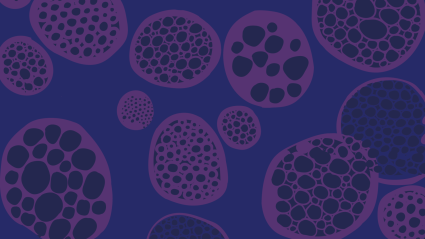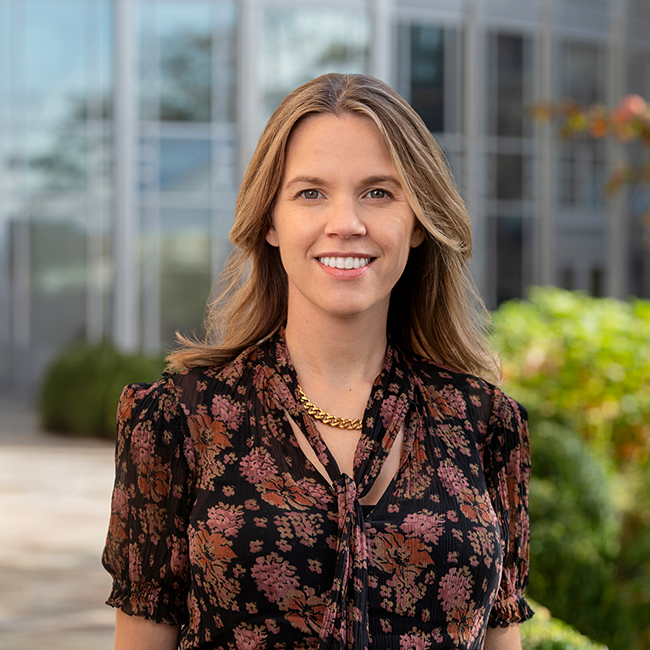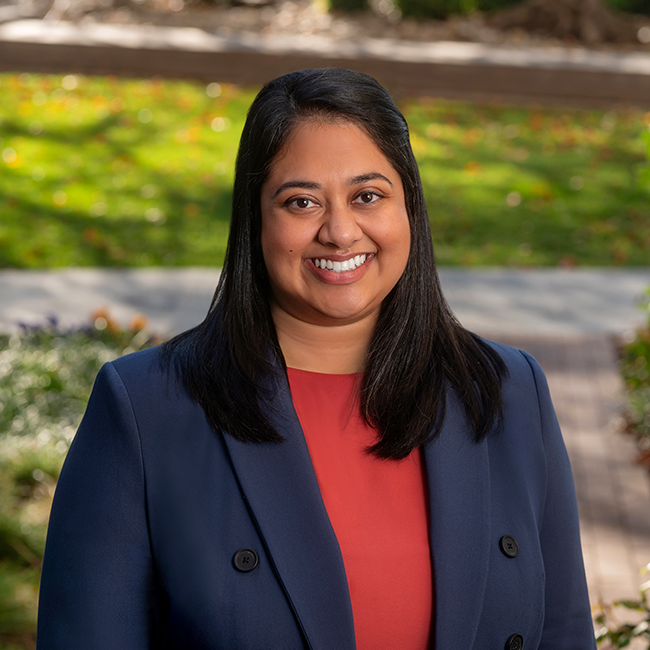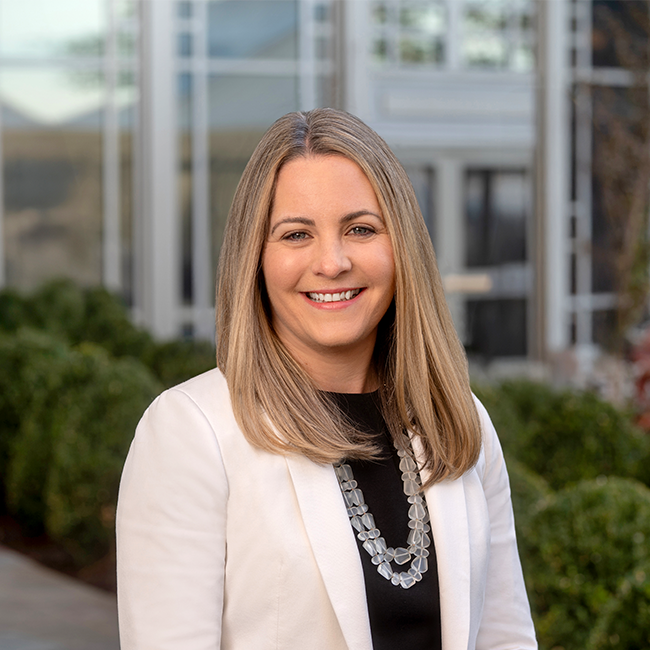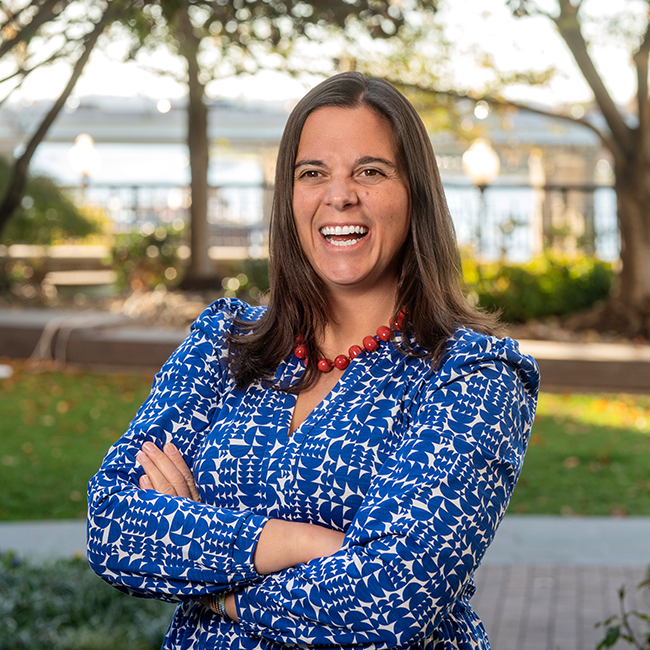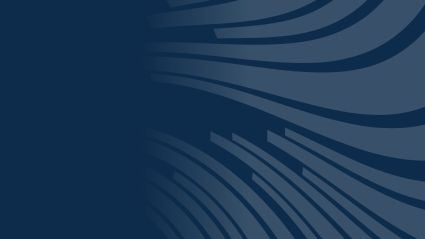
The Ann Theodore Foundation (ATF) is launching a new funding cycle for the Breakthrough Sarcoidosis Initiative in partnership with the Milken Institute Science Philanthropy Accelerator for Research and Collaboration (SPARC).
The Ann Theodore Foundation Breakthrough Sarcoidosis Initiative (ATF-BSI) is now accepting applications for two-year research projects that seek to increase the foundational understanding of sarcoidosis through projects focused on the biology and epidemiology of sarcoidosis.
Description
ATF-BSI will award up to six two-year research grants led by doctorate-level investigators at qualifying research-based institutions around the world. Projects led by individual researchers will be eligible for up to $200,000 USD in funding for direct costs per year plus 15 percent in indirect costs, totaling $230,000 USD per year, and $460,000 over two years. Interdisciplinary teams will be eligible for up to $250,000 USD in funding for direct costs per year plus 15 percent in indirect costs, totaling $287,500 USD per year for a total of $575,000 over two years. Interdisciplinary teams are defined here as either a team of two principal investigators (PI) comprising a sarcoidosis expert and a researcher from a separate field relevant to the project, or a team submitting a proposal with one basic science expert and one clinical expert that incorporates both clinical and basic science aims. Funded investigators will be eligible for a third year of funding with satisfactory progress within the first 18 months at the discretion of ATF.
Sarcoidosis is a disease hallmarked by clusters of immune cells, known as granulomas, that can form in various organs. The lungs are the most frequently affected, but many other organs can be impacted. For some people, the condition resolves on its own, but for others, the condition can become chronic and debilitating. The symptoms can include difficulty breathing, fatigue, and heart arrhythmia, and if the granulomas persist, they can cause severe organ damage and death. Approximately 0.5 percent (1 in 200) of the US population is affected by sarcoidosis; however, it impacts African American women at higher rates than other demographics.
While sarcoidosis is often considered a rare disease, its true prevalence may be higher due to underdiagnosis and a lack of awareness among clinicians. Environmental exposures and genetic risks have been implicated in the onset of sarcoidosis. The sarcoidosis field needs a clearer understanding of the social determinants of the condition’s development and prognosis. Additionally, autoimmune and infectious causes of sarcoidosis have been studied, but more work is needed to understand the mechanism and etiology of the disease.
A Need for Novel Approaches to Study Sarcoidosis
Sarcoidosis is a multidimensional condition, and answering its most pressing questions will require attention and investment from individuals working in various fields We encourage researchers who study sarcoidosis as well as those who study other granulomatous conditions, rheumatic conditions, autoimmune diseases, infectious conditions, inflammatory conditions, and other fields to apply. Applicants without prior sarcoidosis research experience are encouraged to apply, and they do not need to co-apply with a sarcoidosis expert to be eligible for funding. Sarcoidosis requires study from a variety of perspectives, including but not limited to genetics, epidemiology, molecular biology, and immunology. We encourage investigators to develop research approaches that allow for assessment and understanding across multiple relevant disciplines.
Projects investigating sarcoidosis that may be selected for funding should display novelty, creativity, and promise in seeking innovative approaches to understand the etiology, genetics, epidemiology, or molecular basis of sarcoidosis.
Scientific Focus
ATF-BSI welcomes proposals to investigate sarcoidosis regardless of organ system. The scientific focus of ATF-BSI proposals should address one or more of the following focus areas:
- studies that seek to elucidate the underlying causes of clinical heterogeneity in sarcoidosis, employing approaches inclusive of genetics, molecular biology, and epidemiological studies
- projects focused on the discovery or testing of diagnostic biomarkers
- studies that examine the heterogeneity of responses to therapeutics
- research projects that examine the genetic, social, and/or environmental determinants of sarcoidosis development, progression, and persistence
- studies on other potential causes of sarcoidosis, including autoimmune and/or infectious risks for sarcoidosis
- studies that seek to elucidate the biology of granuloma formation, propagation, and persistence in sarcoidosis
- investigations into the immunobiology of sarcoidosis, such as immunotyping and immunodissections
- studies that elucidate the mechanisms of downstream effects and comorbidities in sarcoidosis (e.g., fibrosis)
- studies that involve the application of new tools or technologies that will improve the understanding of the basic biology of sarcoidosis
- ancillary studies that examine the cellular and molecular biological effects of off-label therapeutics
- development or improvement of a computational, cellular, or animal model for further investigation of sarcoidosis
Studies may be performed in human, mouse, cell, or computational models. Applicants proposing to use human samples must describe the demographics of their cohort.
Eligibility Criteria
- Each applicant organization must be a nonprofit academic or research institution, including domestic and non-US nonprofit organizations, domestic and non-US public/private academic universities or institutions of higher learning (including colleges, universities, medical schools, and other related academic research institutions); certain qualified governmental agencies with active biomedical research programs may also apply.
- All proposed research projects must be led by a PI who holds a doctorate (e.g., PhD, MD) or a related research doctorate degree. The PI must be an independent investigator.
- Institutions may submit more than one proposal, but a unique PI must lead each proposal.
Optional Letter of Intent (LOI) and Application Requirements
All completed LOIs and applications shall be submitted through a Survey Monkey Apply grant portal, found at https://Milken.smapply.io/prog/sarcoidosisgrant.
It is recommended that each applicant keep in mind the portal’s requirements when preparing the application. Applications shall be single spaced and formatted in Calibri 11 pt font with 1-inch margins, except where provided templates apply. Formatting and length shall be strictly enforced by the review team. Any submissions that exceed the page limit or do not follow the aforementioned requirements shall not be considered for review.
All applicants are encouraged to submit an optional LOI, which shall be reviewed by the ATF-BSI review team. The LOI will be an opportunity for initial feedback on the project. Applicants who propose relevant projects will be notified that their project falls within the scope of the program. If ATF-BSI informs an applicant that their project does not fall within the scope of the program, the applicant is still able to submit a full proposal, but ATF-BSI would advise changing the scope of the project. As the LOI is optional, all applicants may submit a full proposal, regardless of their submission of an LOI.
- Optional letter of intent. The LOI is a one-page letter briefly stating the intent to apply for a grant, project title, and project aims. The LOI also requires the applicant organization’s legal name; PI name, degree, position, and contact information; and the organization’s tax ID (for US), or registered charity number.
- LOIs are due Thursday, October 23, 2025, at 11:59 PM Eastern Time.
- LOIs should be submitted via the Survey Monkey Apply grant portal, which can be accessed via this link: https://Milken.smapply.io/prog/sarcoidosisgrant
- Should the ATF-BSI team, in its sole discretion, find that a project described in an LOI falls in the scope of the program, the applicant will be notified by email within approximately two (2) weeks of the LOI submission deadline. The LOI is an opportunity for initial feedback and provides a chance to alter the project as needed before submitting a full proposal.
- Proposal. A formal proposal outlining the intended project shall be no more than eleven (11) pages in length, outlining the intended project, and will be organized as follows:
- Cover Page. One (1) page, including the following:
- Project title (a short title identifying the project and its intended area of focus).
- Lay summary (succinct summary intended for a public audience describing the project’s aims, goals, any previous accomplishments, and how it will benefit the field).
- Name of applicant institution and principal investigator.
- Project Summary Page. One (1) page, including the following:
- Technical abstract.
- Aims and milestones (summary of what the project aims to accomplish and the major milestones the PI anticipates the project will complete in the process of meeting project aims). Aims should include future plans for the project. Major milestones should include an estimated timeframe of completion.
- Full roster of project team members.
- Scientific Approach (outline of which research methodology the PI intends to use in pursuit of the project, in addition to defining and justifying key project outcome measures). Four (4) pages maximum, inclusive of references in the applicants’ preferred format.
- All proposals must be focused on the biology, biochemistry, epidemiology, or immunobiology of sarcoidosis. Studies that are only tangentially related to sarcoidosis will not be considered.
- Proposals must be accompanied by a brief protocol synopsis and timeline. As noted below, approval from an Institutional Review Board (IRB) for human studies or from the Institutional Animal Care and Use Committee (IACUC) for animal studies will be required before initial payment is made for any project that the ATF-BSI, in its sole discretion, selects for funding. If new approvals are required during the course of the funding period
- Studies that entail human participants or patient samples should specify a plan for recruitment or acquisition, respectively, that will be inclusive of diverse backgrounds as much as possible, including race, gender, ethnicity, and geography.
- Any intellectual property considerations that the proposed research may entail should be noted.
- Any clinical study of an interventional strategy should include a discussion of how participants will be selected, how efficacy will be assessed, participant diversity, necessary sample size, and control populations.
- If alternative plans exist that would be implemented in the event that local conditions prevent research from proceeding as planned, please include a brief description of these arrangements.
- Team capabilities: a statement outlining the research group’s ability to address the research question, support the research, manage patients if applicable; and identification of any key personnel in addition to the PI). A brief explanation of each team member’s expertise and contribution to the project is required. One (1) page maximum.
- Data sharing plan specifying the applicant organization’s commitment to, and plan for, sharing project results and data (de-identified, where applicable) with other institutions and researchers for non-commercial use to advance the understanding of sarcoidosis and to maximize scientific impact, including designation of the particular data repository to which the applicant intends to upload and share such project results and data, and policies and procedures for ensuring that the applicant organization’s PI and all other applicable employees and contractors will comply with and adhere to such plan. One (1) page maximum.
- Budget: a detailed budget in USD with a narrative summary and justification for each item, including how the PI intends to spend their time on the project. Two (2) pages in length using the provided template and one (1) page in length providing narrative justification of budget items. Projects can be budgeted for two years. Projects led by individual researchers can be budgeted for up to $400,000 ($200,000 per year) in direct costs and up to 15 percent of the total budget, or up to $60,000 ($30,000 per year) in indirect costs if they are two years in length. Projects led by interdisciplinary teams comprising a sarcoidosis expert and a researcher from a separate field, or teams comprising a basic science expert and clinical expert with a proposal containing both basic science and clinical aims can be budgeted for up to $500,000 ($250,000 per year) in direct costs and up to 15 percent of the total budget, or up to $75,000 ($37,500 per year) in indirect costs if they are two years in length. Note: If more than one institution is involved in the project, one shall be proposed as the applicant organization responsible for direct funding to the other sub-grantee organizations. Acceptable expenditures for direct costs include:
- salary for the PI, graduate students, postdoctoral researchers, and staff scientists, and other personnel (fringe benefits are also covered)
- equipment and software
- Laboratory supplies, such as reagents and tools
- patient recruitment
- project-related travel, including to the Funded Investigators Meetings, which will be held each summer
- publication costs
- up to an additional 15 percent indirect expenses to support institutional infrastructure (indirect expenses will be proportional to either the $400,000 budget and, therefore, will not exceed $60,000, or the $500,000 budget, and therefore will not exceed $75,000; it is not necessary to provide specifics on the indirect cost expenditures)
- Cover Page. One (1) page, including the following:
Please note grants will be awarded in USD, and the Ann Theodore Foundation is not responsible for changes in conversion rates. Proposals selected for funding will be made payable to the applicant organization. Under no circumstances will funding be paid to, or earmarked for, any individual.
- Additional documentation within the online form will include:
- Lead PI’s and any Co-PI’s biosketch from the NIH template or equivalent. Five (5) pages or fewer using the NIH template. Trainees do not have to provide a biosketch.
- Completed electronic signature confirming that the grant proposal contains information that is true, complete and accurate and that false or fraudulent statements may subject the institution to criminal, civil or administrative penalties.
- Institutional letter of commitment stating that applicant institution will be able to support the research led by the PI.
- Organizational assurances: Upon request, an applicant institution may be required to submit additional information to document its non-profit status.
- Non-US-based applicant organizations must provide:
- A list of voting board members and officers and the name of the organization’s highest-ranking staff member (e.g., chief executive officer).
- Additional organization governing documents and other documentation via a secondary questionnaire, following proposal submission. The Ann Theodore Foundation will request these documents during proposal review. For more information, please visit https://www.ngosource.org/how-an-ed-works.
- US-based governmental organizations (excluding academic/research institutions that are public charities) must provide:
- a full copy of the enabling statute that authorized the organization’s creation
- a copy of the organization’s governing documents (such as articles of organization or constitution and bylaws), if applicable
- any correspondence from the IRS confirming the organization’s tax status, if applicable
Note on Artificial Intelligence Use: ATF understands that artificial intelligence (AI) tools are being used to support authors. ATF supports the ethical and responsible use of AI tools. The human authors who choose to use these tools are accountable for anything that AI has developed or edited. Applicants and awardees are expected to abide by best practices in research and publishing ethics and must address any questions pertaining to the accuracy or integrity of any of their work.
As all applications are considered confidential, neither ATF nor SPARC will use AI to analyze any submissions.
Review
The ATF-BSI team will seek independent expert review for each application. All applications will be reviewed based on:
- scientific and technical merit
- team capabilities and competencies
- the potential impact of the project on the field of sarcoidosis
- the realism of the cost
Key Dates and Timeline
- Thursday, October 9, 2025: Informational session on sarcoidosis and the Ann Theodore Foundation Breakthrough Sarcoidosis Initiative (ATF-BSI) will be held via Zoom at 3 p.m. Eastern Time. Please use the following link to register: https://milkeninstitute-org.zoom.us/meeting/register/lr3nsgW3S0ipYJi__SGMkA
- Thursday, October 23, 2025: Voluntary letters of intent due via the Survey Monkey Apply grant portal by 11:59 p.m. Eastern Time.
- Friday, November 7, 2025: Those who submitted an LOI will be notified whether their proposed project is within the scope of the program. Those who submit an LOI are permitted to make modifications to the project before submitting a full proposal.
- Monday, January 19, 2026: Applicants shall submit their full proposals via the Survey Monkey Apply grant portal by 11:59 p.m. Eastern Time. Note that applicants who miss the LOI deadline are still permitted to submit a full proposal.
- May 2026: Awardees who are selected for funding are notified.
- June 2026: Projects begin.
- Summer 2026: The Funded Investigators Meeting takes place. Lead PIs of funded teams are expected to attend.
Grant Terms
Each funded research institution and the lead investigator will be required to cosign and agree in writing to the ATF-BSI’s grant terms within 30 days from receipt of notice of the award and prior to funds being released. The ATF-BSI’s grant terms include the following:
- Signature confirming that the information provided in the grant proposal is true, complete, and accurate. False or fraudulent statements may subject the funded organization to criminal, civil, or administrative penalties.
- Any substantial changes to the project, including activities, budget, protocols, or grant period, require written approval from the ATF-BSI before proceeding with such activities, spending or committing any remaining funds from the grant.
- Any funds not expended or committed for the purposes of the grant must be returned to the ATF-BSI unless otherwise agreed by the Ann Theodore Foundation in writing.
- If an applicant organization proposes to supplement any funds provided by the ATF-BSI with funds provided by a third party, the organization must first provide notice to the ATF-BSI and must ensure that the funding terms that attach to any such third-party funds do not preclude sharing of data or publication of project results as stipulated in this RFP.
- The applicant organization must be able to receive awarded funds and allocate them toward the funded sarcoidosis research project.
- The funded investigators must submit a plain-language, nonconfidential scientific abstract intended for a public audience for the ATF-BSI to display on its website.
- The funded investigators are expected to attend and participate in annual investigators’ meetings to present and discuss their research plan and preliminary results in the research supported by the ATF-BSI. The annual investigators' meeting is planned for summer 2026.
- Lead PIs are encouraged to invite a trainee working on the project to accompany them to the annual investigators’ meeting.
- In addition to the trainee, if an early career investigator (defined as being a PI for ≤ 5 years) is working on the project, the lead PI is permitted to invite them as an additional guest to the annual investigators' meeting.
- Lead PIs are encouraged to invite a trainee working on the project to accompany them to the annual investigators’ meeting.
- The funded investigators are expected to attend and participate in Quarterly Check-In Meetings. These virtual meetings will bring together currently funded investigators to provide opportunities to share updates and solicit feedback from their peers. These meetings may also be used as workshops to support the investigators or the sarcoidosis ecosystem.
- Funded organizations must agree to the following reporting requirements:
- Submission of full written narrative and financial reports at the conclusion of the granting period, at 24 months, following the award payment.
- At 12 and 18 months after receiving funding, applicants shall also share brief updates describing major project highlights and/or progress based on predetermined milestones after the initial award payment as well as participate in a brief virtual meeting with other grant recipients to discuss plans, progress, and findings.
- Approval from an IRB or the local equivalent (for human studies) or from IACUC or the local equivalent (for animal studies) will be required before initial payments are made.
- At 18 months, funded investigators may be eligible for an additional year of follow-on funding based on satisfactory completion of milestones and program alignment at the sole discretion of ATF-BSI.
- It is a condition of any funding provided by the ATF-BSI that the investigator seeks to have the results of the funded project submitted to a peer-reviewed, open-access journal or a preprint journal within 18 months after the completion of the project. Each publication would acknowledge, in a form approved by the ATF-BSI, the ATF-BSI’s role in supporting the project. If the investigator does not publish the results within such a time frame, the ATF-BSI would have the right to make such results public. It is acceptable for funded investigators to publish in journals that offer an option to make a publication open-access after a given period of time behind a subscriber paywall, although investigators are encouraged to publish results such that the publications are open-access as early as possible. Specific financial support for such publications will be provided. Funded investigators must inform ATF-BSI of any publication supported by ATF-BSI funds within 30 days of publication.
Data and Intellectual Property
Each funded organization would own the rights of all intellectual property developed by or on behalf of that organization under ATF-BSI funding, in accordance with such organization’s applicable intellectual property policies. The ATF-BSI would have the right to use and to practice all such intellectual property for internal, noncommercial research purposes, and would also have the right to publicly disclose research results in press releases, announcements, and otherwise (subject to the funded organization’s advance approval if any such public disclosure will occur prior to publication of the applicable results). Intellectual property will be sublicensable to nonprofit research institutions for noncommercial educational and research purposes only and will only be used in research related to the prevention, diagnosis, treatment, or cure of sarcoidosis and conditions or complications caused by sarcoidosis.
Each funded organization must agree to share projects results, data (de-identified where applicable), reagents, and other research tools developed under ATF-BSI funding with other ATF-BSI-funded investigators for noncommercial use to advance the understanding of sarcoidosis and maximize scientific impact.
Funding Awarded at ATF-BSI’s Discretion
Responding to this RFP, submitting an LOI and/or submitting a full proposal does not entitle any individual or institution to receive funding from the ATF-BSI. Funding, if any, would be provided at the ATF-BSI’s sole discretion pursuant to the terms of a written grant agreement executed by the ATF-BSI and the selected awardee institution and acknowledged by the funded investigator.
Contact Information
For all inquiries about the online process, necessary documentation, research priorities, or scientific requirements, please contact [email protected].
An automated email confirmation is generated upon submission of the application. If you do not receive a confirmation within 24 hours of submitting your application, please check spam filters and then contact: [email protected].
